Skeletons in the Closet (special edition, signed + framed print - last copy)
by Klaus Pichler
Photographs: Klaus Pichler
Text: Julia Edthofer, Herbert Justnik
Publisher: self-published
112 pages
Pictures: 63
Year: 2013
Comments: 21x21cm, hardbound, limited to 50 copies, signed and numbered book 'Skeletons in the Closet' with print 'Monkey, Badger, Mirror', 20x25cm (printed on Hahnemühle Fine Art Ultra Smooth Photo Rag, signed. Frame size: 38 x 33 x 6
It all started when I happened to catch a glimpse through a basement window of the museum of natural history one night: an office with a desk, a computer, shelves and a stuffed antelope. This experience left me wondering: what does a museum look like behind the scenes? How are exhibits stored when they are not on display? I was intrigued by these questions when I started to work on this project after being granted permission to take photographs on museum premises. Due to the sheer size of the museum (it covers an area of 45.000 square metres!), this series soon turned out to be a long term project. I started to focus on the less well known departments of the museum and their contents. Therefore, the focus of this study is not on the exhibition spaces of the museum of natural history, but on the space behind the scenes, particularly depots, cellars, and storage rooms assigned to individual departments which are generally not accessible to the public. These spaces are used for the storage of countless exhibits belonging to various collections, sorted following a rigidly scientific classification system, but also taking into account the limited storage space available. As a photographer with limited knowledge of scientific research methods, the museum's back rooms presented to me a huge array of still lives. Their creation is determined by the need to find space saving storage solutions for the preservation of objects but also the fact that work on and with the exhibits is an ongoing process. Full of life, but dead nonetheless. Surprises included!
> see also Klaus Pichler's fine art prints
More books by Klaus Pichler
-
Fürs Leben gezeichnet (signed - last copy)
by Klaus Pichler
sold out -
Skeletons in the Closet (signed - last copy)
by Klaus Pichler
sold out -
One Third (signed)
by Klaus Pichler
Euro 22 -
One Third (signed + print - last copies)
by Klaus Pichler
Euro 220 -
Just the Two of Us (signed - single copy)
by Klaus Pichler
Euro 250 -
Just the Two of Us (signed + print)
by Klaus Pichler
sold out -
DUST (signed)
by Klaus Pichler
Euro 48 -
DUST (book + print)
by Klaus Pichler
Euro 250 -
Golden days before they end (signed - English)
by Klaus Pichler
sold out -
Golden days before they end (first German edition - signed)
by Klaus Pichler
sold out -
Golden days before they end (signed - German - last copies)
by Klaus Pichler
Euro 125 -
This will change your life forever (signed poster)
by Klaus Pichler
Euro 49 -
This will change your life forever (signed)
by Klaus Pichler
Euro 45 -
The Petunia Carnage (signed - last copy)
by Klaus Pichler
sold out -
Golden days before they end (English edition)
by Klaus Pichler
Euro 58 -
Skeletons in the Closet (special edition, signed + print)
by Klaus Pichler
sold out -
A hoax, a prank, an internet scam, an act of agricultural bio-...
by Klaus Pichler
Euro 49.50 -
Golden days before they end (English edition) - used copy
by Klaus Pichler
Euro 58 40.60 -
Fear Guards the Lemon Grove (signed - last copy)
by Klaus Pichler
sold out
more books tagged »animals« | >> see all
-
Endangered
by Erik Hijweege
sold out -
Grimaces of the Weary Villages (last copies)
by Rimaldas Viksraitis
Euro 34 -
Pecorino Calendar 2008
by Toni Anzenberger
Euro 95 -
Ashes and Snow: feather to fire
by Gregory Colbert
sold out -
Looking Into The Pre-God's Eyes (signed)
by Andrei Liankevich
Euro 59 -
Pecorino in Styria
by Toni Anzenberger
sold out
more books tagged »taxidermy« | >> see all
more books tagged »Austrian« | >> see all
-
Überlebt
by Kurt Hoerbst
Euro 69 -
Roots & Bonds (signed - last two copies)
by Regina Anzenberger
sold out -
Presistence - World Press Photo
by Joop Swart Masterclass 2010
sold out -
Bilder aus Österreich
by Alfred Seiland
sold out -
Tuareg Women
by Christine de Grancy
Euro 44 -
west
by Regina Maria Anzenberger
Euro 56 28.00
Random selection from the Virtual bookshelf josefchladek.com
Skeletons in the Closet (special edition, signed + framed print - last copy)
by Klaus Pichler
Photographs: Klaus Pichler
Text: Julia Edthofer, Herbert Justnik
Publisher: self-published
112 pages
Pictures: 63
Year: 2013
Comments: 21x21cm, hardbound, limited to 50 copies, signed and numbered book 'Skeletons in the Closet' with print 'Monkey, Badger, Mirror', 20x25cm (printed on Hahnemühle Fine Art Ultra Smooth Photo Rag, signed. Frame size: 38 x 33 x 6
It all started when I happened to catch a glimpse through a basement window of the museum of natural history one night: an office with a desk, a computer, shelves and a stuffed antelope. This experience left me wondering: what does a museum look like behind the scenes? How are exhibits stored when they are not on display? I was intrigued by these questions when I started to work on this project after being granted permission to take photographs on museum premises. Due to the sheer size of the museum (it covers an area of 45.000 square metres!), this series soon turned out to be a long term project. I started to focus on the less well known departments of the museum and their contents. Therefore, the focus of this study is not on the exhibition spaces of the museum of natural history, but on the space behind the scenes, particularly depots, cellars, and storage rooms assigned to individual departments which are generally not accessible to the public. These spaces are used for the storage of countless exhibits belonging to various collections, sorted following a rigidly scientific classification system, but also taking into account the limited storage space available. As a photographer with limited knowledge of scientific research methods, the museum's back rooms presented to me a huge array of still lives. Their creation is determined by the need to find space saving storage solutions for the preservation of objects but also the fact that work on and with the exhibits is an ongoing process. Full of life, but dead nonetheless. Surprises included!
> see also Klaus Pichler's fine art prints
More books by Klaus Pichler
-
Fürs Leben gezeichnet (signed - last copy)
by Klaus Pichler
sold out -
Skeletons in the Closet (signed - last copy)
by Klaus Pichler
sold out -
One Third (signed)
by Klaus Pichler
Euro 22 -
One Third (signed + print - last copies)
by Klaus Pichler
Euro 220 -
Just the Two of Us (signed - single copy)
by Klaus Pichler
Euro 250 -
Just the Two of Us (signed + print)
by Klaus Pichler
sold out -
DUST (signed)
by Klaus Pichler
Euro 48 -
DUST (book + print)
by Klaus Pichler
Euro 250 -
Golden days before they end (signed - English)
by Klaus Pichler
sold out -
Golden days before they end (first German edition - signed)
by Klaus Pichler
sold out -
Golden days before they end (signed - German - last copies)
by Klaus Pichler
Euro 125 -
This will change your life forever (signed poster)
by Klaus Pichler
Euro 49 -
This will change your life forever (signed)
by Klaus Pichler
Euro 45 -
The Petunia Carnage (signed - last copy)
by Klaus Pichler
sold out -
Golden days before they end (English edition)
by Klaus Pichler
Euro 58 -
Skeletons in the Closet (special edition, signed + print)
by Klaus Pichler
sold out -
A hoax, a prank, an internet scam, an act of agricultural bio-...
by Klaus Pichler
Euro 49.50 -
Golden days before they end (English edition) - used copy
by Klaus Pichler
Euro 58 40.60 -
Fear Guards the Lemon Grove (signed - last copy)
by Klaus Pichler
sold out
more books tagged »animals« | >> see all
-
Endangered
by Erik Hijweege
sold out -
Grimaces of the Weary Villages (last copies)
by Rimaldas Viksraitis
Euro 34 -
Pecorino Calendar 2008
by Toni Anzenberger
Euro 95 -
Ashes and Snow: feather to fire
by Gregory Colbert
sold out -
Looking Into The Pre-God's Eyes (signed)
by Andrei Liankevich
Euro 59 -
Pecorino in Styria
by Toni Anzenberger
sold out
more books tagged »taxidermy« | >> see all
more books tagged »Austrian« | >> see all
-
Überlebt
by Kurt Hoerbst
Euro 69 -
Roots & Bonds (signed - last two copies)
by Regina Anzenberger
sold out -
Presistence - World Press Photo
by Joop Swart Masterclass 2010
sold out -
Bilder aus Österreich
by Alfred Seiland
sold out -
Tuareg Women
by Christine de Grancy
Euro 44 -
west
by Regina Maria Anzenberger
Euro 56 28.00
Random selection from the Virtual bookshelf josefchladek.com
Skeletons in the Closet (special edition, signed + framed print - last copy)
by Klaus Pichler
Photographs: Klaus Pichler
Text: Julia Edthofer, Herbert Justnik
Publisher: self-published
112 pages
Pictures: 63
Year: 2013
Comments: 21x21cm, hardbound, limited to 50 copies, signed and numbered book 'Skeletons in the Closet' with print 'Monkey, Badger, Mirror', 20x25cm (printed on Hahnemühle Fine Art Ultra Smooth Photo Rag, signed. Frame size: 38 x 33 x 6
It all started when I happened to catch a glimpse through a basement window of the museum of natural history one night: an office with a desk, a computer, shelves and a stuffed antelope. This experience left me wondering: what does a museum look like behind the scenes? How are exhibits stored when they are not on display? I was intrigued by these questions when I started to work on this project after being granted permission to take photographs on museum premises. Due to the sheer size of the museum (it covers an area of 45.000 square metres!), this series soon turned out to be a long term project. I started to focus on the less well known departments of the museum and their contents. Therefore, the focus of this study is not on the exhibition spaces of the museum of natural history, but on the space behind the scenes, particularly depots, cellars, and storage rooms assigned to individual departments which are generally not accessible to the public. These spaces are used for the storage of countless exhibits belonging to various collections, sorted following a rigidly scientific classification system, but also taking into account the limited storage space available. As a photographer with limited knowledge of scientific research methods, the museum's back rooms presented to me a huge array of still lives. Their creation is determined by the need to find space saving storage solutions for the preservation of objects but also the fact that work on and with the exhibits is an ongoing process. Full of life, but dead nonetheless. Surprises included!
> see also Klaus Pichler's fine art prints
More books by Klaus Pichler
-
Fürs Leben gezeichnet (signed - last copy)
by Klaus Pichler
sold out -
Skeletons in the Closet (signed - last copy)
by Klaus Pichler
sold out -
One Third (signed)
by Klaus Pichler
Euro 22 -
One Third (signed + print - last copies)
by Klaus Pichler
Euro 220 -
Just the Two of Us (signed - single copy)
by Klaus Pichler
Euro 250 -
Just the Two of Us (signed + print)
by Klaus Pichler
sold out -
DUST (signed)
by Klaus Pichler
Euro 48 -
DUST (book + print)
by Klaus Pichler
Euro 250 -
Golden days before they end (signed - English)
by Klaus Pichler
sold out -
Golden days before they end (first German edition - signed)
by Klaus Pichler
sold out -
Golden days before they end (signed - German - last copies)
by Klaus Pichler
Euro 125 -
This will change your life forever (signed poster)
by Klaus Pichler
Euro 49 -
This will change your life forever (signed)
by Klaus Pichler
Euro 45 -
The Petunia Carnage (signed - last copy)
by Klaus Pichler
sold out -
Golden days before they end (English edition)
by Klaus Pichler
Euro 58 -
Skeletons in the Closet (special edition, signed + print)
by Klaus Pichler
sold out -
A hoax, a prank, an internet scam, an act of agricultural bio-...
by Klaus Pichler
Euro 49.50 -
Golden days before they end (English edition) - used copy
by Klaus Pichler
Euro 58 40.60 -
Fear Guards the Lemon Grove (signed - last copy)
by Klaus Pichler
sold out
more books tagged »animals« | >> see all
-
Endangered
by Erik Hijweege
sold out -
Grimaces of the Weary Villages (last copies)
by Rimaldas Viksraitis
Euro 34 -
Pecorino Calendar 2008
by Toni Anzenberger
Euro 95 -
Ashes and Snow: feather to fire
by Gregory Colbert
sold out -
Looking Into The Pre-God's Eyes (signed)
by Andrei Liankevich
Euro 59 -
Pecorino in Styria
by Toni Anzenberger
sold out
more books tagged »taxidermy« | >> see all
more books tagged »Austrian« | >> see all
-
Überlebt
by Kurt Hoerbst
Euro 69 -
Roots & Bonds (signed - last two copies)
by Regina Anzenberger
sold out -
Presistence - World Press Photo
by Joop Swart Masterclass 2010
sold out -
Bilder aus Österreich
by Alfred Seiland
sold out -
Tuareg Women
by Christine de Grancy
Euro 44 -
west
by Regina Maria Anzenberger
Euro 56 28.00
Random selection from the Virtual bookshelf josefchladek.com

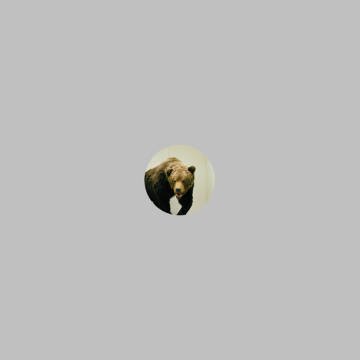



















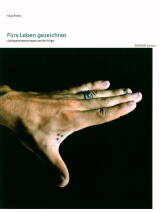































;jpg?c=480a4902eea6385f6b3949426b14a6cd)

;jpg?c=99699862045883df39f9dd536e65901c)
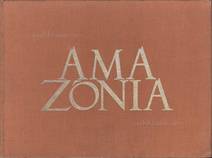



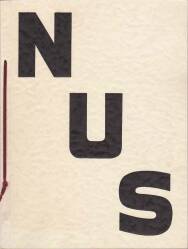
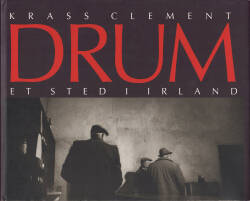
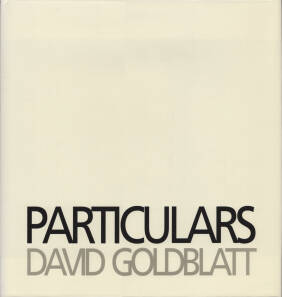

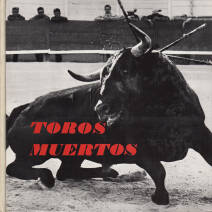
;jpg?c=756810346dff442578cb514a4d86b653)
;jpg?c=8c505814bb215507267c04b84d48d520)
;jpg?c=a8b4058f71c86b1b489d9c6b418c3d8d)